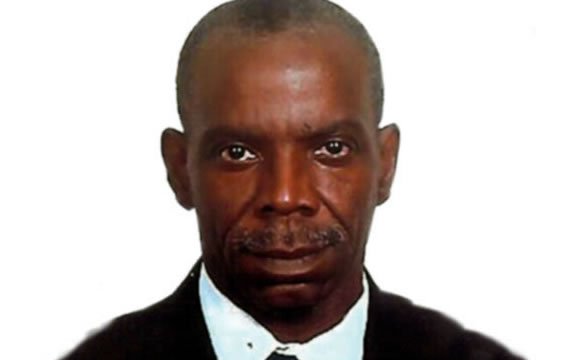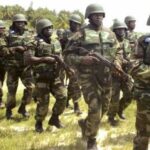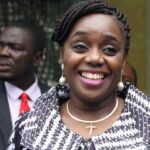
Yes, there is a Nigerian state or country but no one can swear that there is a Nigerian nation. That was the matter that author, Chinua Achebe, was trying to interrogate in his last book, There Was A Country.
In a personal memoir mixed with Nigeria’s history, Achebe presents, in the manner of narrative fiction, a hard look at the corruption and violence that brought the January 15, 1966 military putsch, a countercoup, pogrom and civil war that led to the death of more than three million unfortunate Nigerians.
In Chinua Achebe’s other novel, No Longer At Ease, protagonist Obi Okonkwo was sent to school in England, through communal effort, to study law, “so that when he returned he would handle all their land cases against their neighbours.” He studied English instead.
While Obi was expected to repay the scholarship (that turned out to be a loan), he was also expected to remit money back home to support his folks in addition to helping Umuofia natives secure employment in the government establishment where he would work.
That tells you that the people who work in public service take the commonwealth of Nigeria to feather their ethnic nests. And that is responsible for the lack of agreement between the different ethnic nationalities as to where Nigeria should be. Each is only looking out for his sectional interest.
Everyone tugs at the geographical expression called Nigeria, or Niger Area, to better their ethnic lots and have neither interest nor intention to make Nigeria great for all. Following is the opinion of Emeka Odimegwu-Ojukwu, the deceased leader of the Biafra Republic:
“We have tried to live a Nigeria designed by Great Britain. We have found it difficult in that Nigeria. We have fought the civil war, so many people killed. And still, we have the same problem reoccurring… Perhaps the time has come to review the relevant issues.”
For a man who, as a soldier, pledged allegiance to the sovereignty of Nigeria, and was later disillusioned by the system that refused to fulfil its own promises, it must have indeed been frustrating for Odimegwu-Ojukwu to offer those words of utter regret.
Analysts have suggested that the outcome of the primaries of the Peoples Democratic Party that returned Atiku Abubakar as the presidential candidate confirms that the Northern Nigerian political establishment thinks of the interest of Northern Nigeria first and last.
The members couldn’t give a hoot about what the fate of Nigeria is, as long as there are no threats to making Nigeria’s commonwealth available to the North. You would have noticed that when he won the presidential ticket of the PDP, all former Vice President Atiku Abubakar could say was that politicians should remember “the poor people of this country.”
Of course, he had earlier said something about restructuring, which is dear to the hearts of Southern Nigerians—especially from the South-West and South-West—during his nationwide tour to woo the delegates and (eventually) the electorate.
When Sokoto State Governor, Aminu Tanbuwal, “patriotically” stepped down for Abubakar, it was only in the interests of Northern Nigeria. It was not to serve the interests of Nigeria or other ethnic groups that inhabit Nigeria’s political space. You saw PDP Chairman, Dr Iyorcha Ayu, privately celebrating Tanbuwal as a hero.
You must, however, recognise that either the power of money or realpolitik brinkmanship swayed the delegates of Ekiti State and South-East Nigeria, who cast presidential votes less than their numbers, to former Governor Ayo Fayose of Ekiti State and former Senate President Anyim Pius Anyim respectively.
Sometimes, the dollar sign, the bottom line, is a substitute for religion, region, ethnic loyalty and socioeconomic class. In other words, blood may not really be thicker than anything, as anyone ultimately has a price and can work against his own interest, at least in the short term.
Anyway, those delegates who voted across tribal and religious lines, despite the desperate call for power to shift to Southern Nigeria, could also argue that they were patriots who saw Nigeria above region or even self.
Peter Obi, former Governor of Anambra State, who left the PDP (for the Labour Party) to actualise his presidential quest, must have weighed the odds against him and the other aspirants from Southern Nigeria and, accordingly, took his leave.
But as Obi left, he painted PDP with the following moral tar brush: “Recent developments within our party make it practically impossible to continue participating and making… constructive contributions.”
While some, who allege that he is stingy, suggest that Obi left the PDP because the presidential primary got monetised, others insist that he left because the PDP dumped the zoning formula written into its constitution.
You should not be too surprised, though, if the Igbo electorate eventually cast their presidential votes in favour of Obi, while the Northern Nigerian electorate also does Obi the (dis)favour of casting their votes for Abubakar, just as it is expected that if a Yoruba emerges from All Progressives Congress, he will likely sweep his people’s votes.
But to the possibility that a presidential candidate, other than one of Igbo extraction may emerge from APC, Ohaneze Ndigbo draws a line in the sand with a clear notice, “We are waiting for the APC presidential primary to take the final decision on whether or not Igbo will participate in the 2023 elections.”
When King Jeroboam, who succeeded King Solomon, came up with harsh and ill-advised policies toward the Northern tribes of Israel (no pun intended), the people reacted, “To your tents O Israel! Look now to your own house, O David.”
While Judah, the House of David, remained under the kingship of Jeroboam, grandson of King David, the other tribes went away to form the nation of Israel. One hopes that the action of PDP (and possibly the same action by the APC) will not accelerate the Balkanisation of Nigeria into splinter nations.
Already, Ohaneze Ndigbo, which deplores what it reportedly called the “erratic and corrupt process that was overseen by the unpatriotic Northerners against the southern part of Nigeria,” must be terribly disappointed at the turn of events.
Ohanaeze Ndigbo notes that “It is amusing that PDP is now a Political party for the Northern Region, with Dr Iyorcha Ayu as PDP Chair, Walid Jubril as (Board of Trustees) Chair and Atiku Abubakar as 2023 Presidential candidate.”
It is unfortunate that the Igbo were outmanoeuvred in the PDP where they invested a lot of time, energy, emotion and resources. Ohanaeze Ndigbo observed that “another Northerner, Senator David Mark, supervised the process that schemed out Igbo from PDP.”
Many think the North is playing on primordial sentiments to retain the presidency after eight long and dreary years of violent insecurity, massive corruption allegations and inappropriate macroeconomic policies that did not even have a positive impact on the people and economy of Northern Nigeria.
For the Northern Nigerian political establishment’s winner that wants to take all, they should note the words of the Greek philosopher, Aristotle, who avers that “A statesman rules over equals, i.e., persons of the same status as himself.”
Southern Nigerian politicians and citizens must be more assertive and stop acting as if the North has the capacity to intimidate or cow them into submission.
John Ross Ewing Sr. of America’s TV soap opera, Dallas, said, “No one gives you power. You take it.”
Copyright PUNCH.
All rights reserved. This material, and other digital content on this website, may not be reproduced, published, broadcast, rewritten or redistributed in whole or in part without prior express written permission from PUNCH.
Contact: [email protected]





